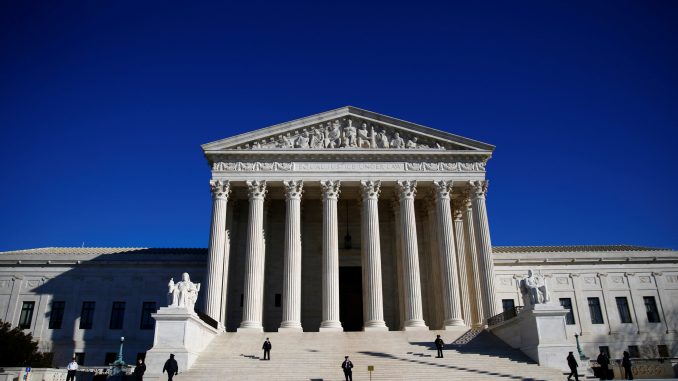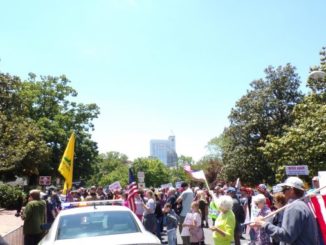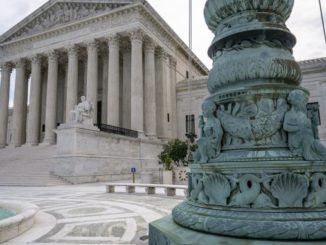
RALEIGH — Last week, the Supreme Court of the United States declined to hear an appeal from the Fourth Circuit Court of Appeals which had determined that the Rowan County Board of Commissioners violated the U.S. Establishment Clause by opening their public meetings with prayer. The case, brought by three residents of Rowan County who were offended by the board’s prayers, began when the U.S. District Court for the Middle District of N.C. found in favor of the complaining citizens. Later, a panel of the Fourth Circuit Court of Appeals overturned the ruling of the lower court. Subsequently the full Fourth Circuit Court affirmed the lower court’s decision, which set up the appeal to the country’s highest court.
The five-member county board convenes twice a month in meetings that are open to the public. Each meeting has begun with a prayer, which the commissioners take turns leading. According to court documents, the prayers typically begin with an invitation to pray and end with a communal “amen.” The current board is made up of all Christians and their prayers frequently reference Jesus Christ. But, the Board does not dictate the content of the prayers, leaving it up to the individual member.
The Supreme Court denied a further appeal to Rowan County by denying the county’s petition for a writ of certiorari — the Supreme Court’s discretionary process of selecting cases. If four Justices agree to review the case, then the Court grants certiorari. The court’s ruling simply stated, without identifying the justices involved, “The petition for a writ of certiorari is denied.”
Justice Thomas, with whom Justice Gorsuch joined, dissented from the denial of certiorari. In his dissent, Justice Thomas said, “this Court’s Establishment Clause jurisprudence is in disarray. Sometimes our precedents focus on whether a ‘reasonable observer’ would think that a government practice endorses religion; other times our precedents focus on whether a government practice is supported by this country’s history and tradition. Happily, our precedents on legislative prayer tend to fall in the latter camp.”
“Yet the decision below did not adhere to this historical approach. In ruling that Rowan County must change the prayers it uses to open its board meetings, the Court of Appeals for the Fourth Circuit emphasized that the county’s prayers are led by the legislators themselves, not by paid chaplains or guest ministers. This analysis failed to appreciate the long history of legislator-led prayer in this country, and it squarely contradicted a recent decision of the Sixth Circuit. I would have granted Rowan County’s petition for certiorari,” said Thomas.
State Rep. Carl Ford (R-Rowan), a former Rowan County Commissioner and current GOP nominee for the N.C. Senate to represent Rowan and Stanly counties, expressed disappointment with the Supreme Court’s decision on Friday. “It proves the continual trend that the Supreme Court is making political decisions,” said Ford. “While I know many of you are also disappointed in this decision, I encourage you to not lose faith and to continue to pray in the name of Jesus.”
While this denial likely closes the door on the case, the issue remains alive in a broader context, as Justice Thomas pointed out in his dissent, “The Fourth Circuit’s decision …. conflicts with a recent en banc decision of the Sixth Circuit.” The high court often takes up cases where the various circuit courts disagree on a topic.



